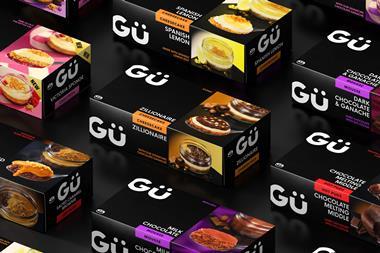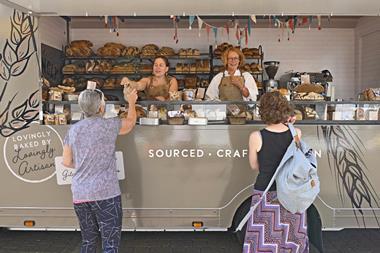Tony Nunan, managing director of the Visuality Group on the role of authenticity in the bakery market
Recent negative publicity over Tesco’s Willow Farm chickens has reignited the debate over so-called ‘fake farm’ brands.
Accusers suggest Tesco is misleading customers; Tesco claims its customers are far savvier than this. This raises interesting questions about authenticity, and the point
where the ‘creative licence’ traditionally enjoyed by brands stops, and deception begins.
Provenance and authenticity are increasingly important in driving shopper behaviour. Warburtons’ 141-year heritage is central to its current advertising, featuring Peter Kay and, of course, Jonathan Warburton himself. (Wittily, these ads parody the brand’s heritage while also extolling it.) Bettys is another great bakery brand grounded in tradition, which uses stylistic connections with its past to underpin a quality promise today.
Yet authenticity doesn’t always have to be based on heritage. Artisanal bakers now springing up across our high streets are the new boys and girls on the block, yet are perceived as the real deal. Their credibility is, presumably, based on the authenticity of their recipes and straightforward product quality, rather than their age.
Looking further afield, for several years, we have worked with Kelsen Group, the world’s biggest manufacturer of Danish butter cookies, to develop its Kjeldsens brand in Asia. The brand is tremendously successful in China and Hong Kong, where its 80-year-old heritage is hugely valued. Paradoxically, these are markets where authenticity can be a two-edged sword. Brand piracy is rife and Kjeldsens is besieged by an endless stream of copycat cookies. So, while there is a need to keep the Kjeldsens brand contemporary, even the slightest change to presentation can be treated with suspicion.
So can authenticity be fabricated? Some 20 years ago, we worked with a small Yorkshire bakery to create a new brand to differentiate its products and protect them from the encroaches of private label. The proposition centred on a character who baked the best Yorkshire puddings in the country. She was called Aunt Bessie, and she has done rather well for herself.
Brands often act as a metaphor – a quick way of communicating product performance and establishing an emotional connection. The question is not whether the brand really exists, but if its products deliver on the brand’s promise. Along with Aunt Bessie’s, the real proof of the pudding lies in the eating.
































No comments yet